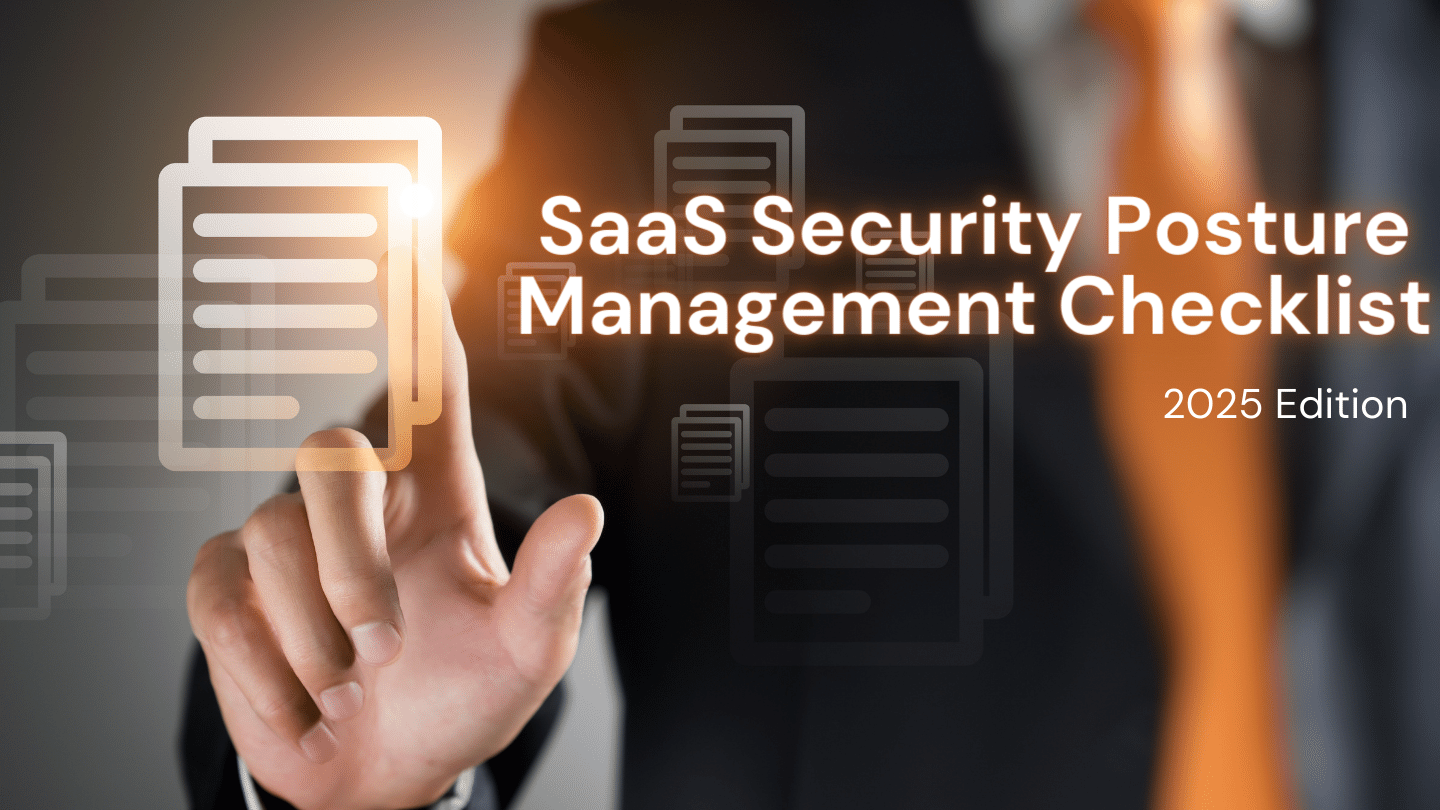- Email: info@clearinfosec.com
- 1800 760 5656

With the rise of Software as a Service (SaaS) applications, ensuring their security has become crucial for organizations of all sizes. Gartner introduced the SaaS Security Posture Management (SSPM) category to provide solutions that continuously assess and manage the security risks associated with SaaS applications. This comprehensive blog outlines the essential elements of a robust SSPM strategy, offering detailed insights and a checklist to help you safeguard your SaaS ecosystem effectively.
As SaaS applications proliferate, so do the associated security risks. To address these challenges, organizations need a robust SaaS Security Posture Management (SSPM) solution. Gartner’s introduction of SSPM underscores the importance of continuously evaluating and managing SaaS security risks. This guide provides a detailed checklist to help organizations implement effective SSPM strategies.
Misconfiguration management is at the heart of SSPM, providing visibility and control over security settings across all SaaS applications. This involves continuous monitoring, posture scoring, automated security checks, and compliance assessments. Effective misconfiguration management includes alerting mechanisms and integration with SOAR/SIEM and ticketing systems to fix issues using existing security tools. Detailed remediation plans and strong collaboration between app owners and security teams are essential to close the remediation loop.
Key Features:
Strong Identity Security Posture Management (ISPM) is crucial for securing the SaaS stack. This includes managing overprivileged, dormant, and external users, and enforcing identity-centric configurations like Multi-Factor Authentication (MFA) and Single Sign-On (SSO). Monitoring non-human identities associated with third-party apps and enabling automated app discovery and management are also critical to mitigating risks.
Key Features:
Centralizing SaaS entitlements enhances identity security posture management, reducing the attack surface and improving compliance. Sophisticated applications like Salesforce, Microsoft 365, and Google Workspace have complex permission structures. Unified visibility into these permissions helps security teams understand and manage risks effectively.
Key Features:
Integrating SSPM with Unified Endpoint Management (UEM) systems is essential to manage risks from SaaS user devices. This integration provides insights into unmanaged, low-hygiene, and vulnerable devices that could be susceptible to data theft.
Key Features:
The integration of generative AI (GenAI) capabilities into SaaS applications introduces new security challenges. SSPM solutions must include GenAI monitoring to identify AI-driven applications with heightened risk levels, check GenAI configurations, and control data accessible by GenAI tools.
Key Features:
SaaS applications often contain sensitive information that can be damaging if leaked. Security teams need visibility into shared settings of documents to prevent data leaks. SSPM solutions should identify publicly or externally shared documents and provide detailed information on access levels and expiration dates.
Key Features:
Identity Threat Detection and Response (ITDR) provides an additional layer of protection by detecting and responding to identity-related threats. ITDR capabilities should be based on logs from the entire SaaS stack to detect anomalies and indicators of compromise (IOCs) accurately.
Key Features:
Developing best practices for SaaS security allows organizations to safely grow their use of SaaS applications. A comprehensive SSPM solution should offer continuous monitoring, automated remediation, and detailed insights into security configurations. For organizations with diverse applications and a large user base, choosing the right SSPM is critical to maintaining a strong security posture.
Key Considerations:
Implementing a robust SSPM solution is vital for protecting your organization’s SaaS environment. By following this detailed checklist, you can ensure continuous monitoring, comprehensive visibility, and automated remediation, thereby safeguarding your critical data and applications effectively. Stay ahead of evolving threats by adopting these best practices and maintaining a strong security posture.
The ultimate saas security posture management checklist, 2025 edition. The Hacker News. (2024, May 22). https://thehackernews.com/2024/05/the-ultimate-saas-security-posture.html
Copyright © 2026 Clear Infosec. All Rights Reserved.